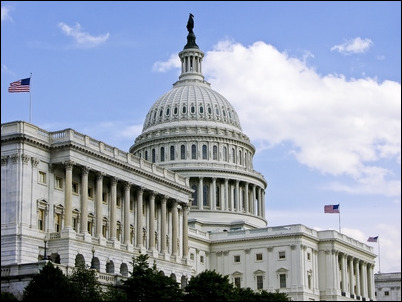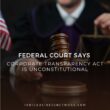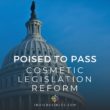This week, I received some news about the status of the pending Safe Cosmetics Act of 2010. For those who don't know, the first version of new cosmetics legislation was circulated in the US House Energy & Commerce Committee in April 2008. My first post on the topic is here. (I had to archive the comments because all 2,000+ of them kept crashing my blog.) The release was quickly followed by an August 2008 trip to Capitol Hill to meet with legislators and introduce them to the small scale cosmetics manufacturing industry. You can read about some of my other advocacy trips here, and here.

You can also learn about several trips, phone calls and letters to Capitol Hill, the Food & Drug Administration and the Small Business Administration, and the head of the Democratic National Committee to introduce the small, micro-cosmetics industry to legislators and lawmakers. (More about the law and small businesses in my Legislative Advocacy Category.) Late last year, the Handcrafted Soap Makers Guild (HSMG) disbanded the coalition and hired a lobbyist to take over the effort. Since then, I have not been intimately involved in the discussions and meetings, but yesterday, Leigh O'Donnell, HSMG's president, shared the following update about what new legislation may include, and she asked me to share them with you.
Registration: For registration of cosmetics manufacturing facilities and cosmetics products:
* Any cosmetic company with under $2 million in gross aggregate sales per year will be exempt from FDA registration for both the company and products being made.
* A company that makes between $2 million and $10 million in gross aggregate sales per year will register their company (facility) and their products annually. There will be no registration fees and no change forms if you introduce a new product within that year.
* A cosmetic manufacturer that has over $10 million in gross aggregate sales per year will register their company (facility) and their products and will be responsible for a registration fee to the FDA. This fee will be determined by the FDA and will be based on gross sales.
Labeling:
* All botanicals will be listed as what they are on the label and will not need to be broken down into their organic compounds. For example, Coconut Oil will be Cocos Nucifera (Coconut Oil).
* Also, the legislation will NOT require additional testing for products that use already tested, approved and labeled ingredients.
Ingredients:
* The FDA will be charged with coming up with three categories of cosmetic ingredients: Safe without limits, Restricted, and Prohibited.
* All food-grade ingredients will be on the “Safe without limits list”.
* Ingredients on the “Restricted list” may be used in cosmetics but will have restrictions on usage or quantity.
* Ingredients on the “Prohibited list” cannot be used in cosmetics and will have a 2 year phase out period.
* To facilitate compliance, the FDA will maintain an online site for companies to access information on the three categories of ingredients and will update regularly, including the addition of new ingredients after testing and determinations are made.
I am told that the “Soap Exemption,” a piece of legislation stating that soap with cleaning properties that come from alkali salts of fatty acids, and which are not labeled as anything other than soap, will continue to be exempt from regulation as cosmetics.
What Next?
With politics, and this being the start of an election season, it's anyone's guess.
It's not clear from this new information what is being discussed with regard to how essential oils will be treated. Which of the above categories will they fit into? Will they be considered “food grade,” and thus safe without limits?
Additionally, if states can pass laws that impose different requirements on small manufacturers, the practical impact of any federal legislation — even with an exemption for small business — will be impacted. (Example: a 2009 Colorado state bill, which almost passed in 2009). These and other questions remain under discussion, I suppose.
I am told that a new bill may be introduced by the end of the summer. If that happens, some elected officials will support the bill and others will not. I look forward to what happens next, and to sharing my commentary and IBN's response.
If the topic of how cosmetics are regulated in the United States interests you, click here for a list of links to online resources to help you learn more.
Question: What do you think of this new update? What questions or comments do you have?



